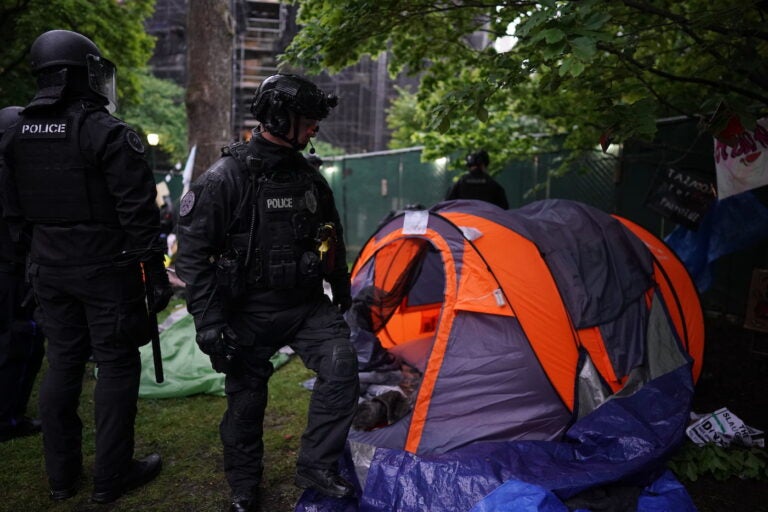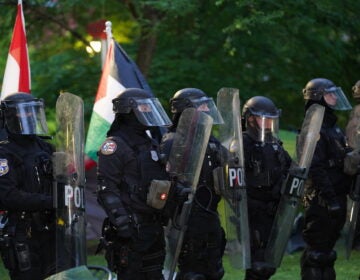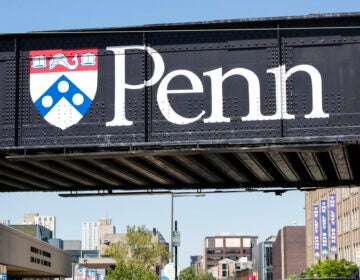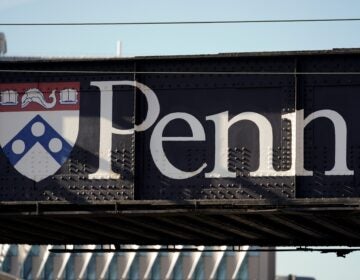Penn bans encampments while citing ‘commitment to open expression’
Encampments and overnight demonstrations are not permitted and unauthorized overnight activities will be considered trespassing.

Police disband the pro-Palestine encampment and make numerous arrests, Friday May 10, 2024, on the campus of the University of Pennsylvania. (Joseph Kaczmarek for WHYY)
From Philly and the Pa. suburbs to South Jersey and Delaware, what would you like WHYY News to cover? Let us know!
The University of Pennsylvania has effectively banned encampments on its campus following multiple arrests of pro-Palestinian protesters last month.
According to UPenn’s Temporary Standards and Procedures for Campus Events and Demonstrations, encampments and overnight demonstrations are not permitted in any university location, regardless of space. Unauthorized overnight activities will be considered trespassing.
The demonstration guidelines also won’t allow people to “erect structures, walls, barriers, sculptures, or other objects on University property without prior permission from the Vice Provost for University Life.”
Demonstrations are also not permitted at multiple campus locations, including the following:
- Private offices
- Private residences
- Research laboratories and associated facilities
- Computer centers
- Offices
- Museums
- Libraries
- Other facilities that normally contain valuable or sensitive materials, collections, equipment, records protected by law or by existing university policy such as educational records, student-related or personnel-related records, or financial records
- College Hall and its exterior steps and entrance ways
- Classrooms, seminar rooms, auditoriums or meeting rooms in which classes or private meetings are being held or are immediately scheduled
- Hospitals, emergency facilities, communication systems, utilities or other facilities or services vital to the continued functioning of the university
- University sculptures and statues
According to a statement from the university, the standards “reinforce and reaffirm Penn’s commitment to open expression” and “ensure that events, demonstrations, and other expressions of free speech are appropriately managed.”
Last month, 33 protesters were arrested on Penn’s campus while police dismanted the Gaza Solidarity Encampment, which lasted for weeks. The encampment centered around three student-led demands: “Divulge, Divest and Defend.” The day before, Penn placed six students on a mandatory leave of absence for their reported participation in the encampment.
A week following that, 19 protesters, including six Penn students, were arrested after trying to occupy Penn’s Fisher-Bennett Hall. A Penn spokesperson said officers found “lock-picking tools and homemade metal shields fashioned from oil drums.”
In April, students from Penn, Drexel and Temple Universities marched with pro-Palestinian protesters through Philadelphia and called for a permanent ceasefire in the Israel-Hamas war and voiced support for student-led protests across the U.S that were taking place at the time.

Get daily updates from WHYY News!
WHYY is your source for fact-based, in-depth journalism and information. As a nonprofit organization, we rely on financial support from readers like you. Please give today.






